If you’re looking for kingfisher stories in Africa, you will encounter people as well as birds. When I began my search, Derek Pomeroy, emeritus professor at Makerere University in Kampala and also an expert ornithologist, advised me, ‘As written sources are few or non-existent, you have to make do with conversations with hunters, farmers and fishermen.’ Often it’s not the birders who can tell you the story behind a bird, but the people who work in the field or know the local culture. Sometimes different stories about the same bird are told in different African cultures. So in the world of bird myths and folklore, both the bird and the storyteller are important. There is no story that stands alone.

Paul Tamwenya is a leading bird and culture guide in Uganda and Rwanda. He was born in 1982 in Uganda’s Eastern Region near Mount Elgon National Park, in the village of Nangaiza in Kibuku district. From a young age, Paul would accompany his grandfather, Enock Summer Kiuto, into the surrounding countryside. Enock was a hunter of birds, large rodents and small mammals, a master in the use of the hunting stick and catapult. During their days out together he would often tell his grandson the stories about Uganda’s birds and wildlife that he in turn had learnt from his grandfather. Enock died in 2012 at the age of 102.
In our conversations in Uganda, when we would contemplate the country’s rich avifauna after a day spent birding, and via e-mail too, Paul has shared with me kingfisher tales known to the Gwere people for at least five generations. He is clearly more than just a trained guide who expertly produces one endemic bird species after another to the appreciation of his clients. For him it’s not simply about ticking offnew bird species. Reflecting on the bird you’ve seen, the splendour of its plumage, its brilliant song in the early morning, its characteristic courtship display – these are experiences that are not only shaped by your eye and brain, but are also coloured by your feelings. Birds can touch your soul.
Denne historien er fra May - June 2017-utgaven av African Birdlife.
Start din 7-dagers gratis prøveperiode på Magzter GOLD for å få tilgang til tusenvis av utvalgte premiumhistorier og 9000+ magasiner og aviser.
Allerede abonnent ? Logg på
Denne historien er fra May - June 2017-utgaven av African Birdlife.
Start din 7-dagers gratis prøveperiode på Magzter GOLD for å få tilgang til tusenvis av utvalgte premiumhistorier og 9000+ magasiner og aviser.
Allerede abonnent? Logg på

EXPLORING NEW HORIZONS
Keith Barnes, co-author of the new Field Guide to Birds of Greater Southern Africa, chats about the long-neglected birding regions just north of the Kunene and Zambezi, getting back to watching birds and the vulture that changed his life.

footloose IN FYNBOS
The Walker Bay Diversity Trail is a leisurely hike with a multitude of flowers, feathers and flavours along the way.

Living forwards
How photographing birds helps me face adversity
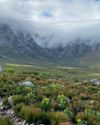
CAPE crusade
The Cape Bird Club/City of Cape Town Birding Big Year Challenge
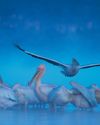
water & WINGS
WATER IS LIFE. As wildlife photographer Greg du Toit knows better than most.
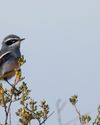
winter wanderer
as summer becomes a memory in the south, the skies are a little quieter as the migrants have returned to the warming north. But one bird endemic to the southern African region takes its own little winter journey.
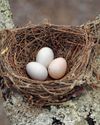
when perfect isn't enough
Egg signatures and forgeries in the cuckoo-drongo arms race

Southern SIGHTINGS
The late summer period naturally started quietening down after the midsummer excitement, but there were still some classy rarities on offer for birders all over the subregion. As always, none of the records included here have been adjudicated by any of the subregion's Rarities Committees.

flood impact on wetland birds
One of the features of a warming planet is increasingly erratic rainfall; years of drought followed by devastating floods. Fortunately, many waterbirds are pre-adapted to cope with such extremes, especially in southern Africa where they have evolved to exploit episodic rainfall events in semi-arid and arid regions. But how do waterbirds respond to floods in areas where rainfall - and access to water - is more predictable? Peter Ryan explores the consequences of recent floods on the birds of the Western Cape's Olifants River valley.
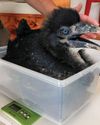
a star is born
It’s every producer’s dream to plan a wildlife television series and pick the right characters before filming.